A highly successful construction manager always has the end goal in sight: delivering a quality project on time, within budget, and with all stakeholders and team members satisfied.
For that to happen, construction managers need to form positive working habits that will help them keep the project on track and as close as possible to the original design.
This article will tell you exactly what those habits are and how nurturing them can positively impact projects, as well as your career.
Read on and start forming some new habits right away!
In this article...
Practicing Delegation
Being a successful construction manager doesn’t mean you have to carry out the project all on your own. Quite the opposite, actually. A good manager is a master in the art of delegation.
In practice, delegation has two aspects. The first is pinpointing the aspects of the construction project that can be handled by other team members.
The second is recognizing talented individuals who can take on important responsibilities without your full supervision.
Easier said than done, isn’t it?
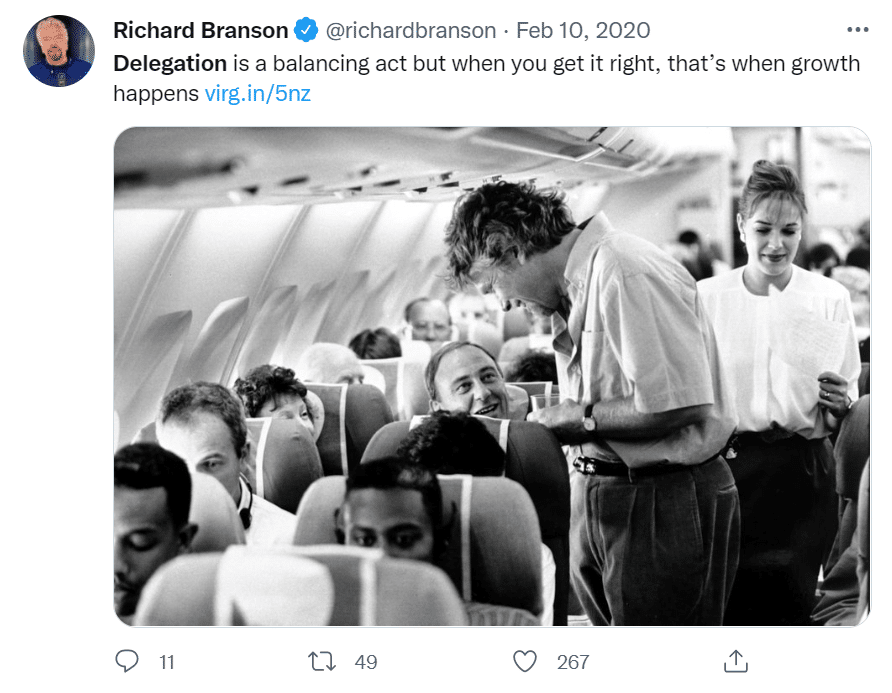
The truth is that effective delegation skills are hard to master, but they’re also the best way to propel your projects and the entire company forward.
It’s not difficult to see why.
For one, practicing delegation frees up your time for other tasks. Instead of focusing on the day-to-day, you can start living in the future by strategizing and negotiating new projects.
Equally important, by entrusting them with different tasks, you’re giving your subordinates a chance to develop their skills and take responsibility for parts of the project, meaning you’re building a stronger, more capable team.
Practicing delegation is a hallmark of great leaders, execs, and managers. Always remember that, and don’t be afraid to lean on your team.
Getting to the Work Site Regularly
The position of manager is all too often associated with office work. While that makes sense for many of today’s industries, construction is a different matter entirely.
Construction managers need to ensure the work is carried out according to project specifications. And that simply cannot be achieved entirely from the office chair.
The best practice to follow here is to set up a site office to easily divide your time between on-site responsibilities and office work.
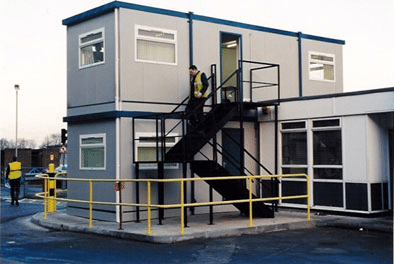
You can use the office for technical and administrative tasks, emails and work calls, but you’re near the site when you need to make your inspections and interact with the site crew.
Being present at the site doesn’t only ensure that everything is going according to plan but also shows the workers that their manager is highly involved with the project and maintains a hands-on approach to work.
And that can be a powerful motivator. In short, a manager’s presence at the site is incredibly important.
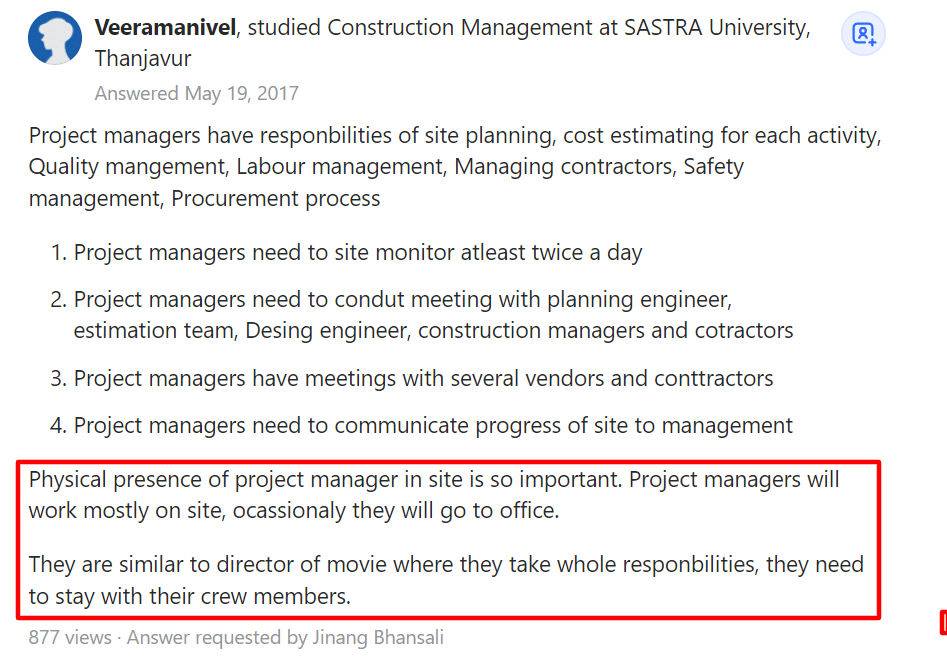
So if you want to be a successful construction manager, don’t hide behind your computer.
Get out there and become familiar with every nook and cranny of your project and the good people building it.
Reading Contract Documentation
In the construction business, it is fairly typical for projects to be very complex and involve many stakeholders.
This complexity calls for a document that will determine what tasks need to be carried out, by whom, and in what order.
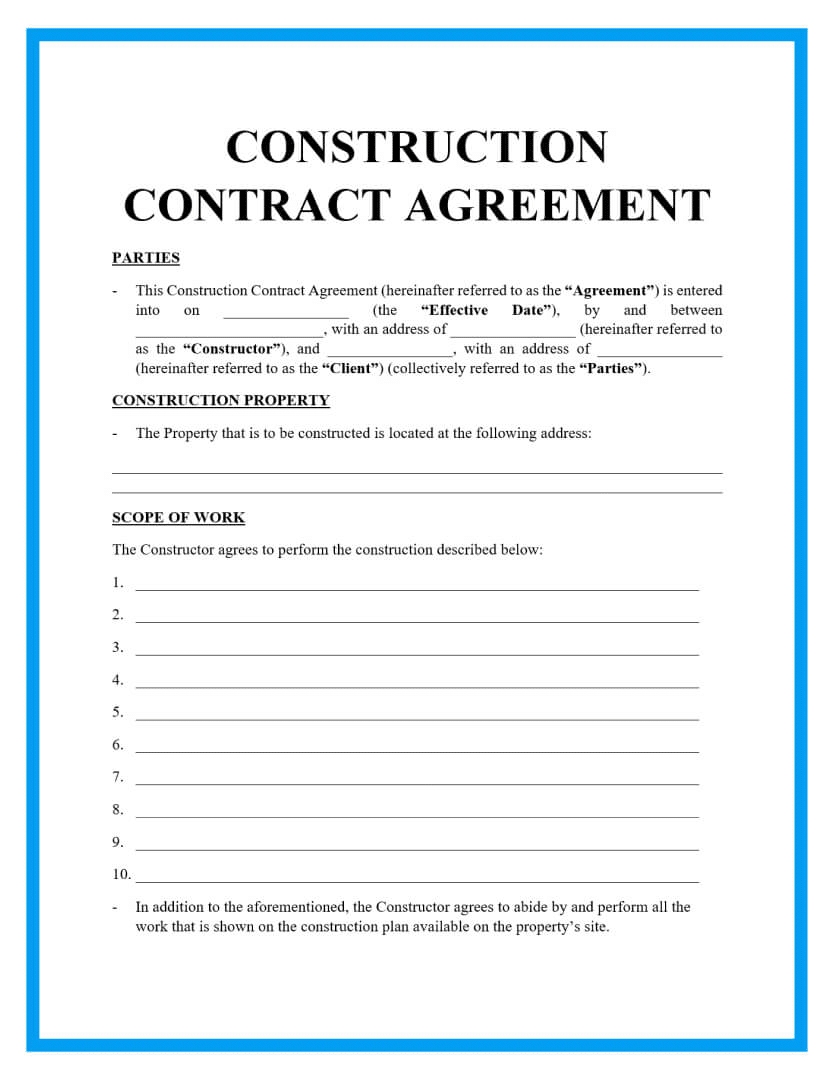
The construction contract is where all of this information, and much more, can be found. It’s any successful construction manager’s best weapon.
Think of the contract documentation as a roadmap for your entire project.
Knowing the ins and outs of the contract will enable you to identify the persons responsible for each phase and aspect of the project and tell you how the project should be carried out.
This means that projects have a much better chance of being completed in time and within budget.
Additionally, any arising conflicts and misunderstandings are managed more easily, as all responsibilities are outlined in the contract, meaning there’s very little room for excuses and shifting blame if any aspect of the project is lacking.
Truly, a project’s contract documentation is a construction manager’s best friend.
Monitoring Construction Costs
Losing sight of a project’s costs or allowing overspending on even the smallest aspects of the project can result in massive financial losses.
That’s why monitoring construction costs is a crucial part of a construction manager’s duties.
In fact, the global pandemic and recent conflicts have caused severe material shortages and resulted in dramatic price increases, making keeping track of the costs more important than ever.
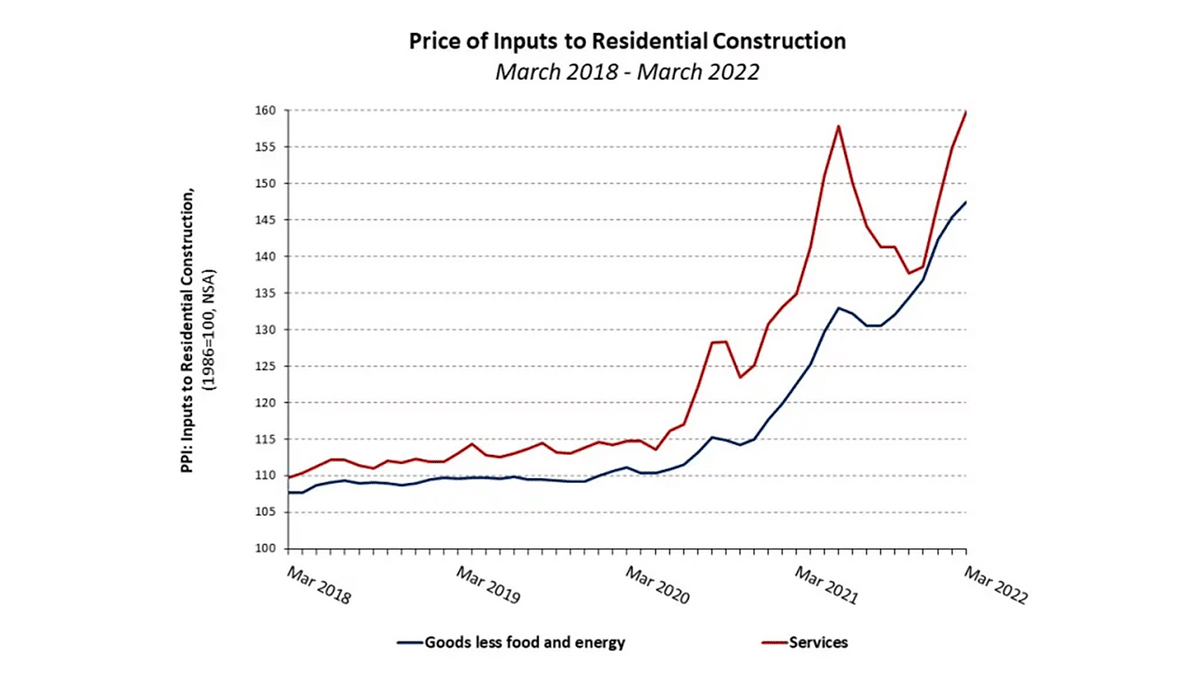
But it’s not just materials that need to be monitored. There’s also the cost of labor, permits, machinery and equipment, and every other aspect of the project.
Clearly, there are many moving parts here, so you should take this part of your job very seriously.
Otherwise, you run the risk of going over-budget, like some of the famous buildings on the following list.
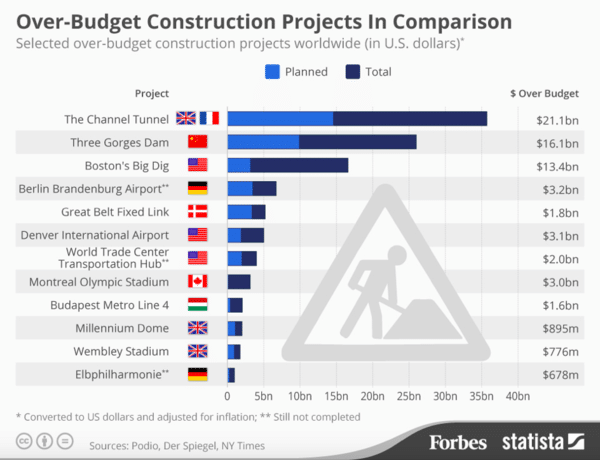
As you can see, budget overruns can have a snowball effect and turn your project infeasible. To avoid that, make sure you keep a close eye on construction costs at all times.
Evaluating Team Productivity
By sticking to the stipulations set forth by the construction contracts and the project’s budget, you’re perfectly positioned to manage your project successfully.
However, these documents are next to meaningless if the team tasked with carrying out the project isn’t meeting its performance targets.
To ensure your project gets finished on time, another habit you should adopt is keeping track of your team’s productivity.
That means continually comparing targets to actual team performance, like in the example below.
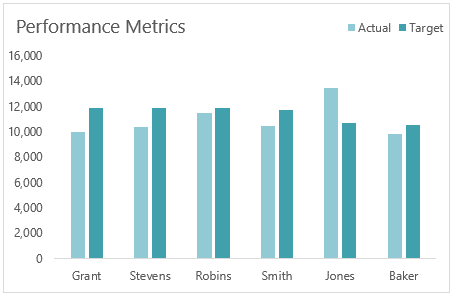
If you continually track productivity, you have a better chance of keeping your project on track.
That’s because even the smallest deviations in productivity can add up and cause you to break deadlines and budgets.
If you let that happen, you’re no longer managing a successful project.
Therefore, don’t forget to regularly check in on your team and remove any obstacles that are keeping them from performing at peak levels.
Defining Goals
As you may have noticed in these last sections, successful construction management is all about preventing your project from descending into chaos.
Another way to do that is to define the goals of your project and stay on the path to achieving them.
Construction goals come in many shapes and sizes. Here are just a few good examples to inspire you:
- Finish on time
- Finish under budget
- Recycle or reuse X% of building materials
- Maintain optimal worker conditions during construction
- Finish the project with zero accidents and safety incidents
These goals may seem immense, but the trick is to divide each of these larger goals into smaller targets and place them on a timeline.
After all, it’s much easier to attain simple and time-based targets than chase after long-term goals that may seem abstract.
Here’s what this kind of timeline might look like if your goal is to finish the project on time:
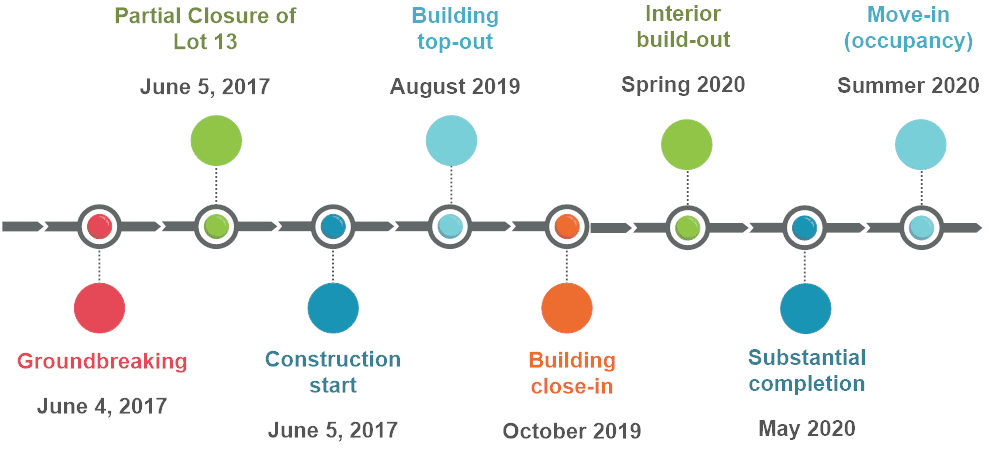
A successful construction manager is always working towards something: a clear and attainable goal that contributes to the successful completion of the project they’re entrusted with.
Managing Tasks
To build on our last point, those targets that represent steps on your way to successful project completion can also be expressed as a set of tasks that need to be completed to move the project forward.
Therefore, task management is another habit of successful construction managers and it works quite similarly to how we described goal setting.
Once again, the key to success lies in coming up with a list of smaller tasks and providing a clear timeframe for the tasks to be completed.
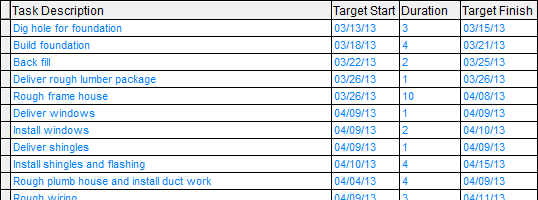
Making task management a habit should help you keep on top of which tasks are completed on time and which tasks need additional manpower or more tools to bring them across the finish line before the project starts falling behind.
This might not seem crucial to the project, but bear in mind that even the biggest construction projects are made up of smaller tasks which need to be completed successfully and promptly.
Using Construction Software Tools
Specialized apps and software solutions are now an integral part of any industry, and construction is no exception.
To stay ahead of the game, successful construction managers follow tech trends and incorporate new technologies into their daily work.

And for good reason.
Modern construction projects are simply too complex, and stakeholders in projects can no longer rely on file cabinets and spreadsheets if they want to deliver quality results on time.
For example, just think about all the materials, tools, and vehicles needed for even the simplest building projects.
Too many to keep track of manually, right?
So it comes as no surprise that equipment tracking tools, like our own product, GoCodes, have been steadily growing in popularity.
They represent a simple, cost-efficient way to keep track of every asset you have on the site.
That means less productivity is lost looking for tools, and money is saved because the equipment is easier to locate and manage.
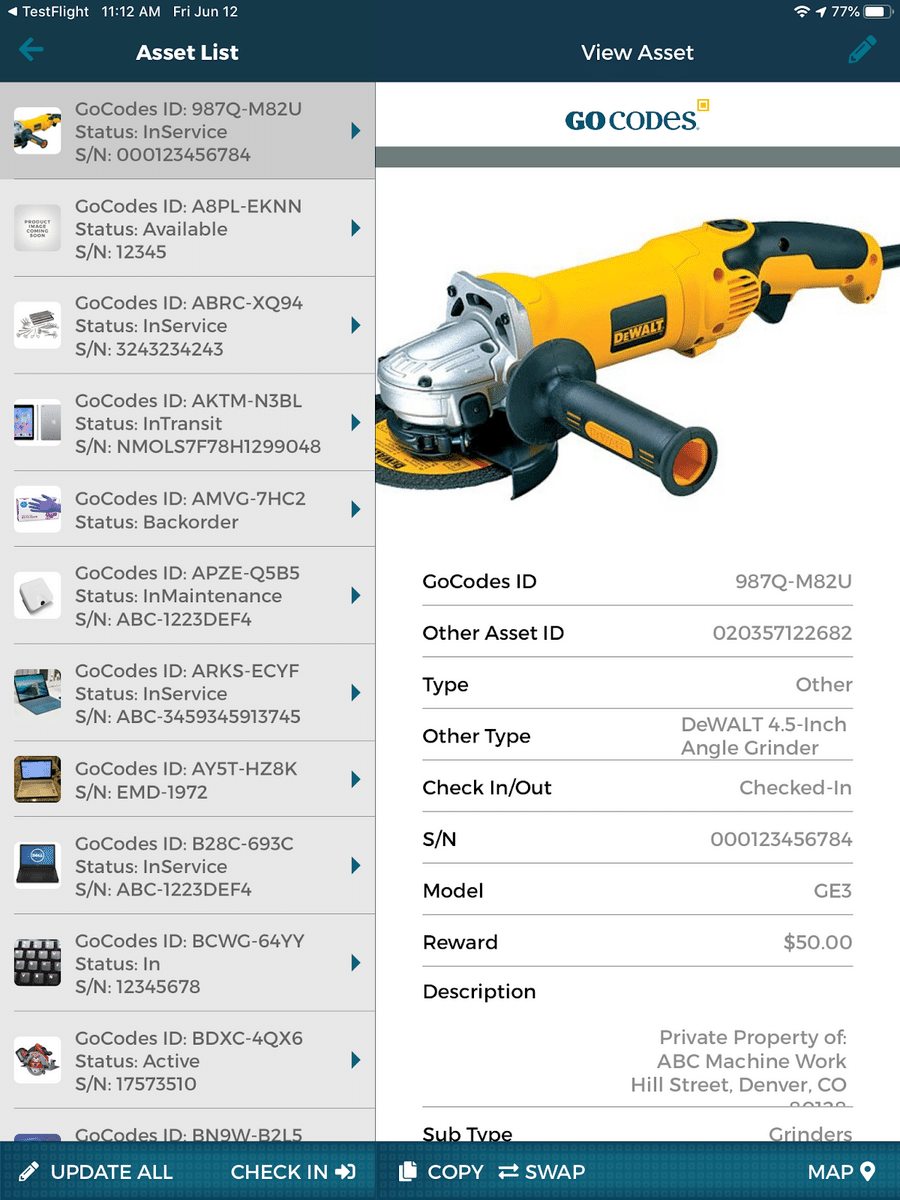
Long story short, if you want to be a successful construction manager, you need to keep up with the times. And using construction software is the best way to do that.
Paying Attention to Detail
Taking into consideration the complexity of modern construction projects, one more item needs to be added to our list of habits successful construction managers nurture: great attention to detail.
In fact, construction companies, like Redpoint Contracting, consider attention to detail in their project management practices as a key ingredient to their success.
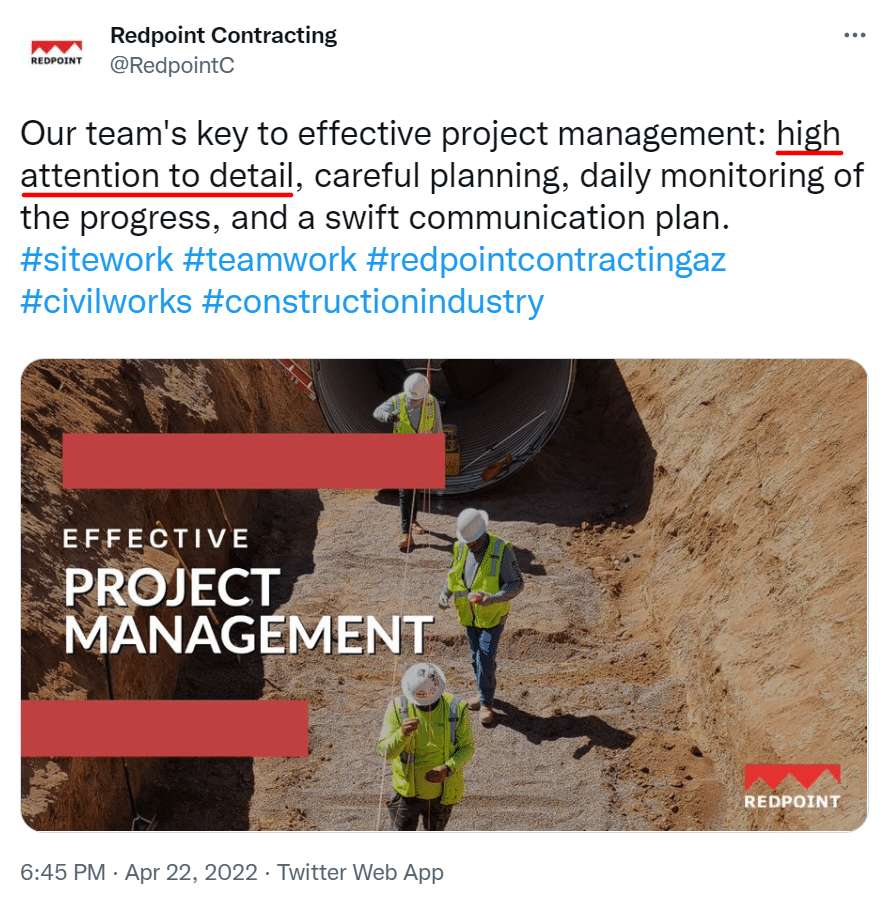
This comes as no surprise in an industry where small details have far-reaching implications and mistakes made on the way can endanger human lives.
A stark example of this can be found in the construction of the Hyatt Regency Hotel, Kansas City.
This building featured an elevated walkway that collapsed two years after it was built because of an engineering miscalculation.
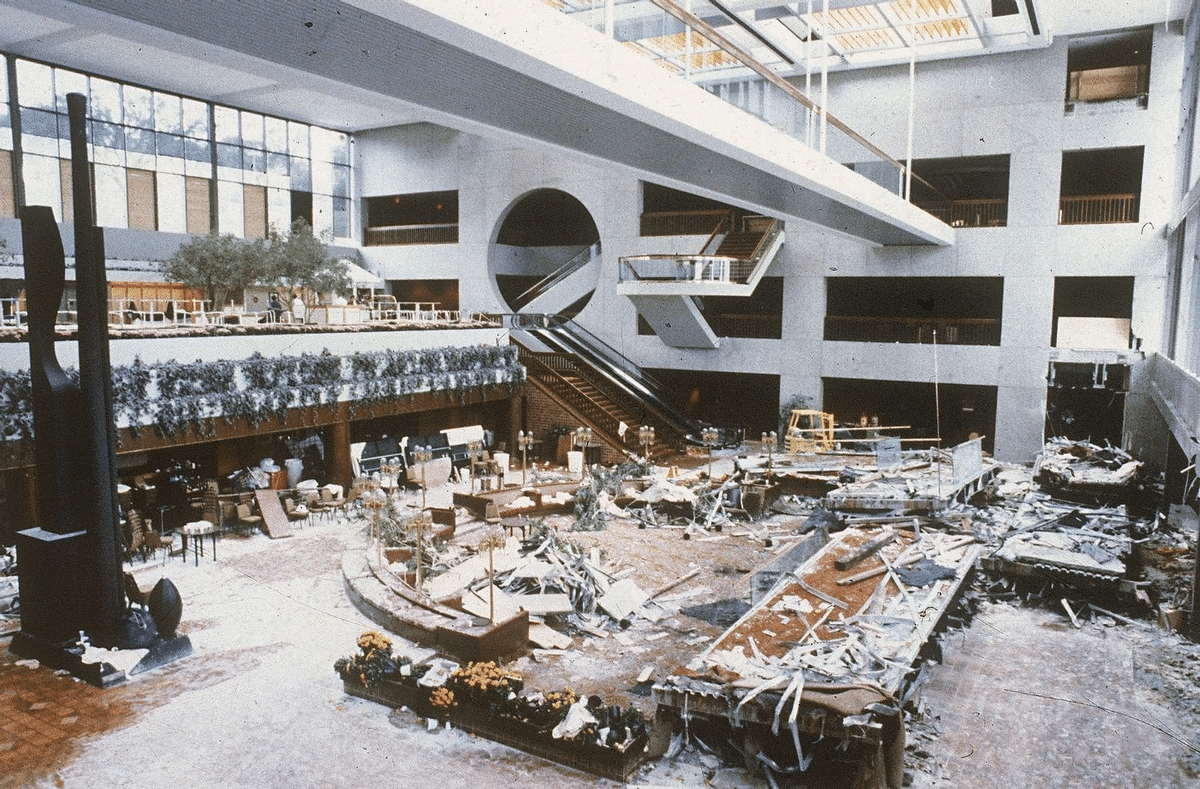
Tragically, this miscalculation resulted in over a hundred lives lost and serves as a reminder of how not paying attention to every detail of a construction project can have dire consequences.
Encouraging Teamwork
It’s almost redundant to say that all construction projects are team efforts.
However, recent GIRI research shows that many errors in construction can be attributed to poor communication on multiple levels (design, management, construction team).
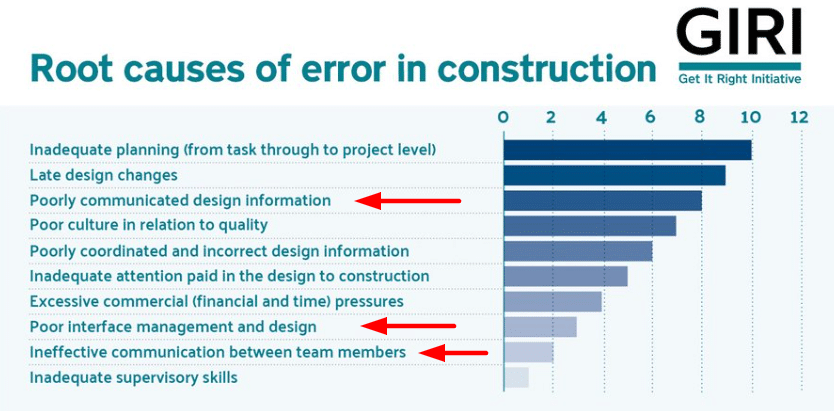
This points to the wider problem of lack of efficient collaboration and communication between the participants in construction projects, which is why we can definitely add encouraging teamwork to our list of habits you should have as a successful construction manager.
This is another habit that hinges on good planning.
Good construction management should always include a communication plan that outlines how team members and stakeholders will work together and what modes of communication will be used.
With a good plan in place, team members will always know what the rules of collaboration are and how the construction process will be carried out, which makes working together as a team much easier.
Networking
Managing people, processes, and resources is quite impossible without networking.
That’s why every successful construction manager should make a habit of rubbing elbows with other professionals involved with the project, as well as other experts in the industry.
The first aspect of networking you should consider involves your own crew. As construction projects can stretch out over months and even years.
It’s very important to get to know who you’re working with and instill a sense of camaraderie within the team.
But don’t forget that the industry is bigger than the project you’re working on.
There are plenty of opportunities to mingle with other construction professionals at trade shows and social events, like the one below.
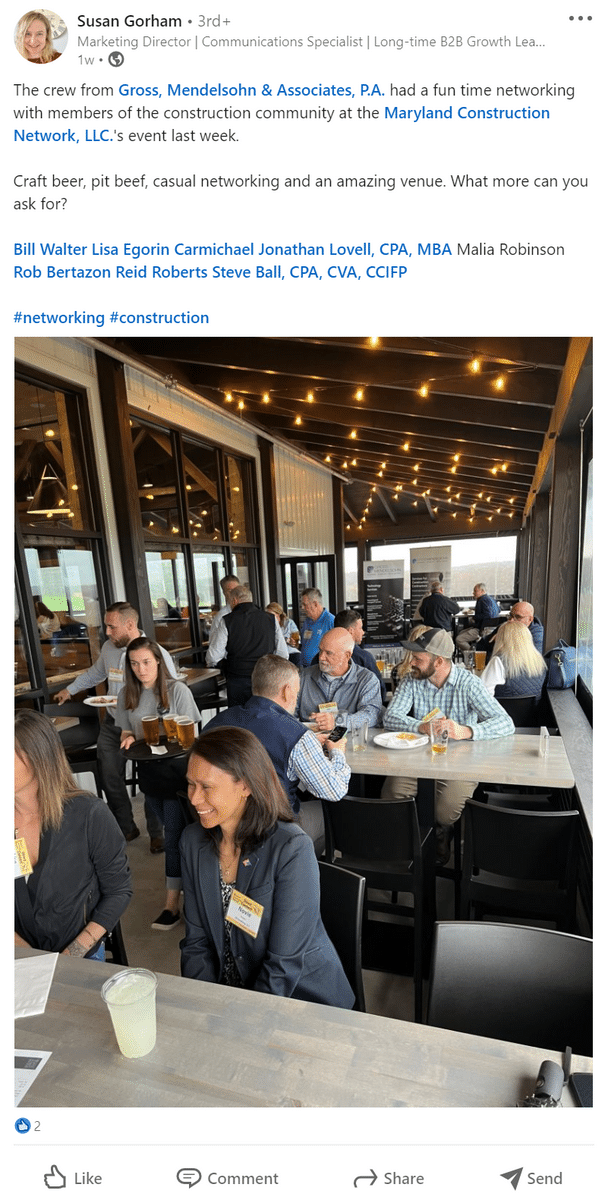
Events like this one are a great opportunity to form relationships with suppliers and even secure new projects for your company, which is why networking is such a useful habit to form on your way to success.
Acknowledging Their Mistakes
Being a successful construction manager doesn’t mean you’re not allowed to make mistakes. It’s how you acknowledge those mistakes that can set you apart from the rest.
Leaders are often afraid of failure because they think it will strip them of their authority. But employees don’t expect you to be perfect. They expect you to be honest and fair.
Let’s look at an example.
Imagine a scenario in which you fire an employee, only to realize that you’ve made a mistake.
Do you stick to your decision, even though it might be harmful to the project, or do you own up to it?
Faced with this choice, Sheila Marcelo, founder and CEO of Care.com, opted for the latter.

After firing an employee on Friday, she came in on Monday, apologized to her team and reversed her decision because it was the right move for the company.
Take a page from Marcelo’s book and do the right thing: own up to your mistakes.
Celebrating Small Wins
It’s clear that good construction management practices are all about achieving targets and completing tasks that push your project toward the finishing line.
Since every milestone counts and contributes to the success of your project, why not make a habit of celebrating small wins?
Successful construction managers never forget to shake someone’s hand after a job well done or to break out the balloons when an important milestone is reached.
For example, have a look at how The Turner Construction Company celebrates an honored tradition for every project, the topping-out milestone.
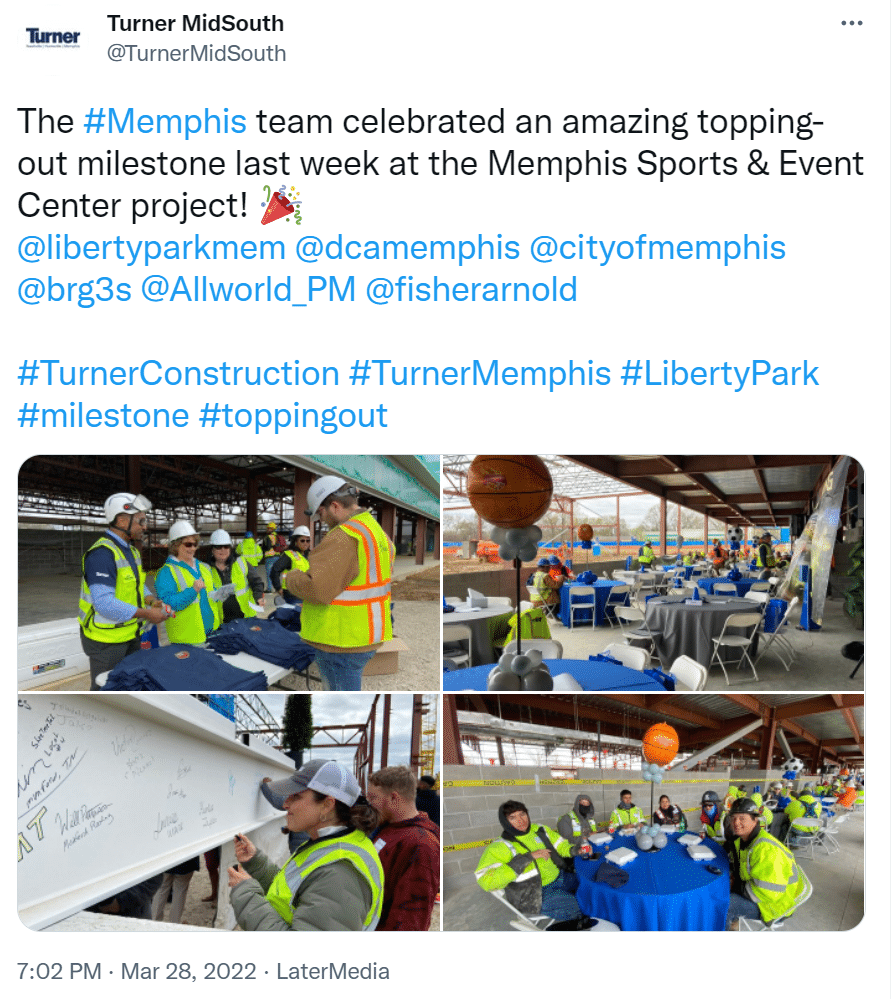
Don’t forget that every step forward in your project is a result of team effort. So celebrate those small wins to really nail construction management.
Thinking Positive
Last but not least, a good habit to develop if you want to find success in construction management is to maintain a positive outlook.
This may appear simple, but remember that construction is one of the most stressful industries out there.
Mistakes will be made and things can always go wrong, but your ability to not panic and maintain control will be instrumental in getting the work back on track.
At least, that’s what the experts are saying. For example, Cedric Kovacs-Johnson, CEO and founder of Flume Health advises managers to focus on what they can control, instead of what’s out of their hands.
“I’ve found that the anxiety in ‘crisis-type’ scenarios stems from the moments when we’re not in control—waiting on a potential hire to get back to you, a funding decision, an external market shift. I try to recognize what I can and must do, versus what’s out of my control.”
Therefore, having a positive attitude isn’t necessarily a skill that’s difficult to learn. It all depends on where you focus your energy and efforts.
Conclusion
It’s safe to say that successful construction managers are creatures of habit. They realize that their tasks and responsibilities aren’t one-time occurrences, but lasting processes.
There’s definitely a lot to consider in our list of fourteen habits of highly successful construction managers.
Some habits you may already have, while some others may take a little practice. So start forming good habits today and watch your career really take off.





